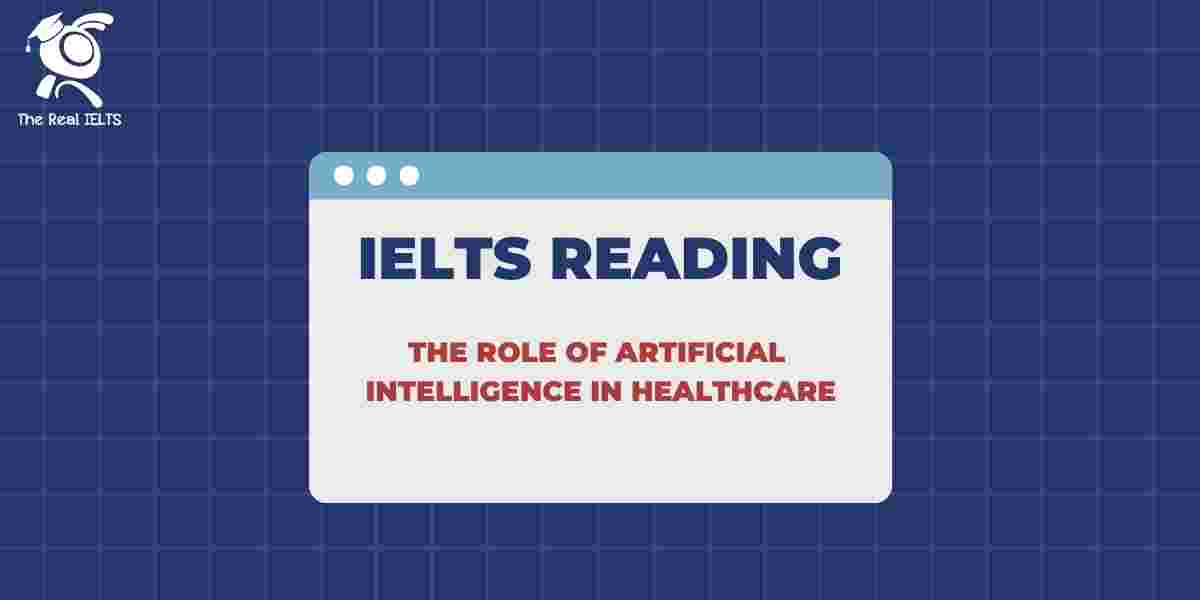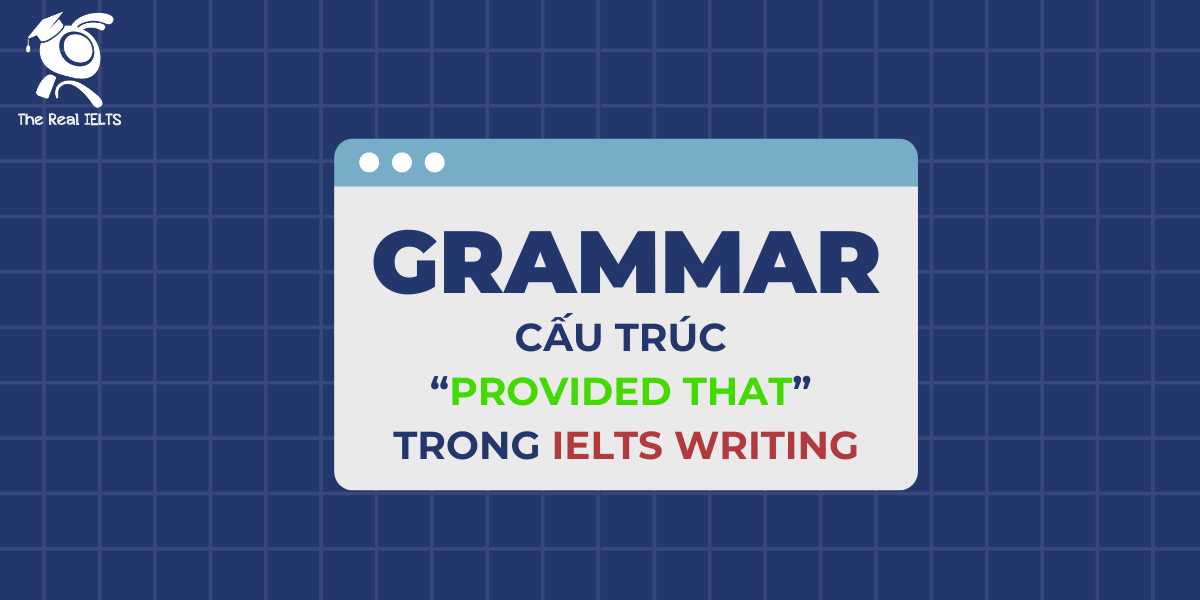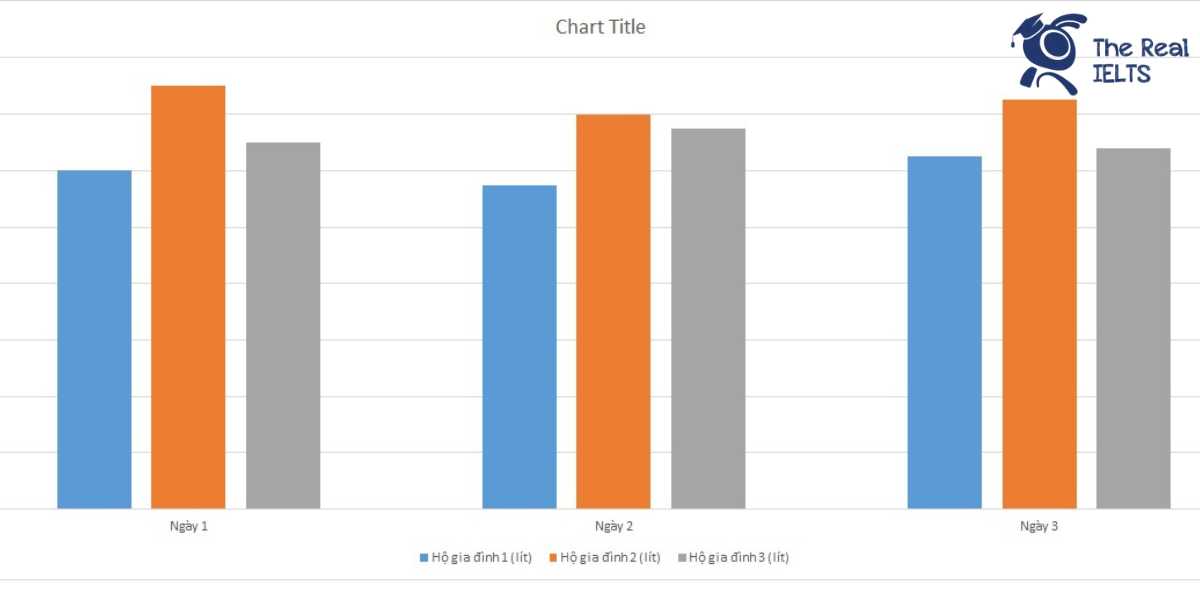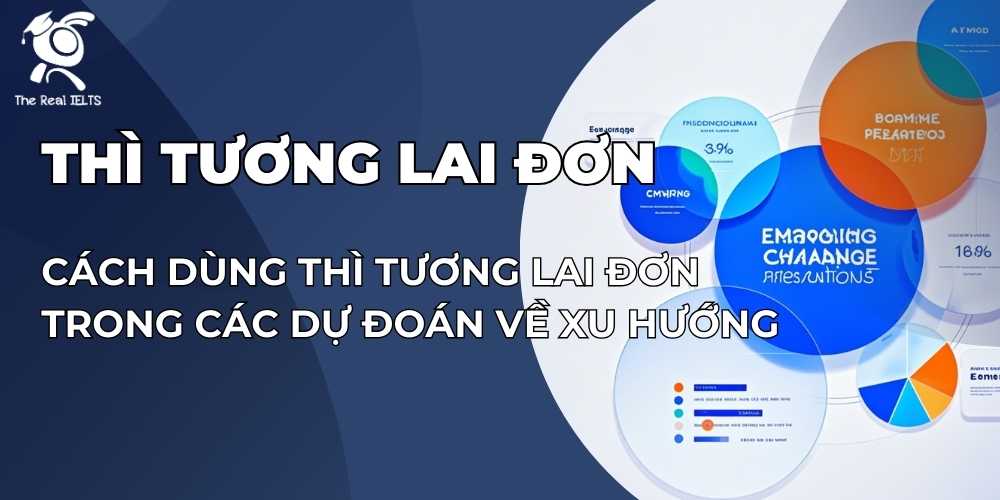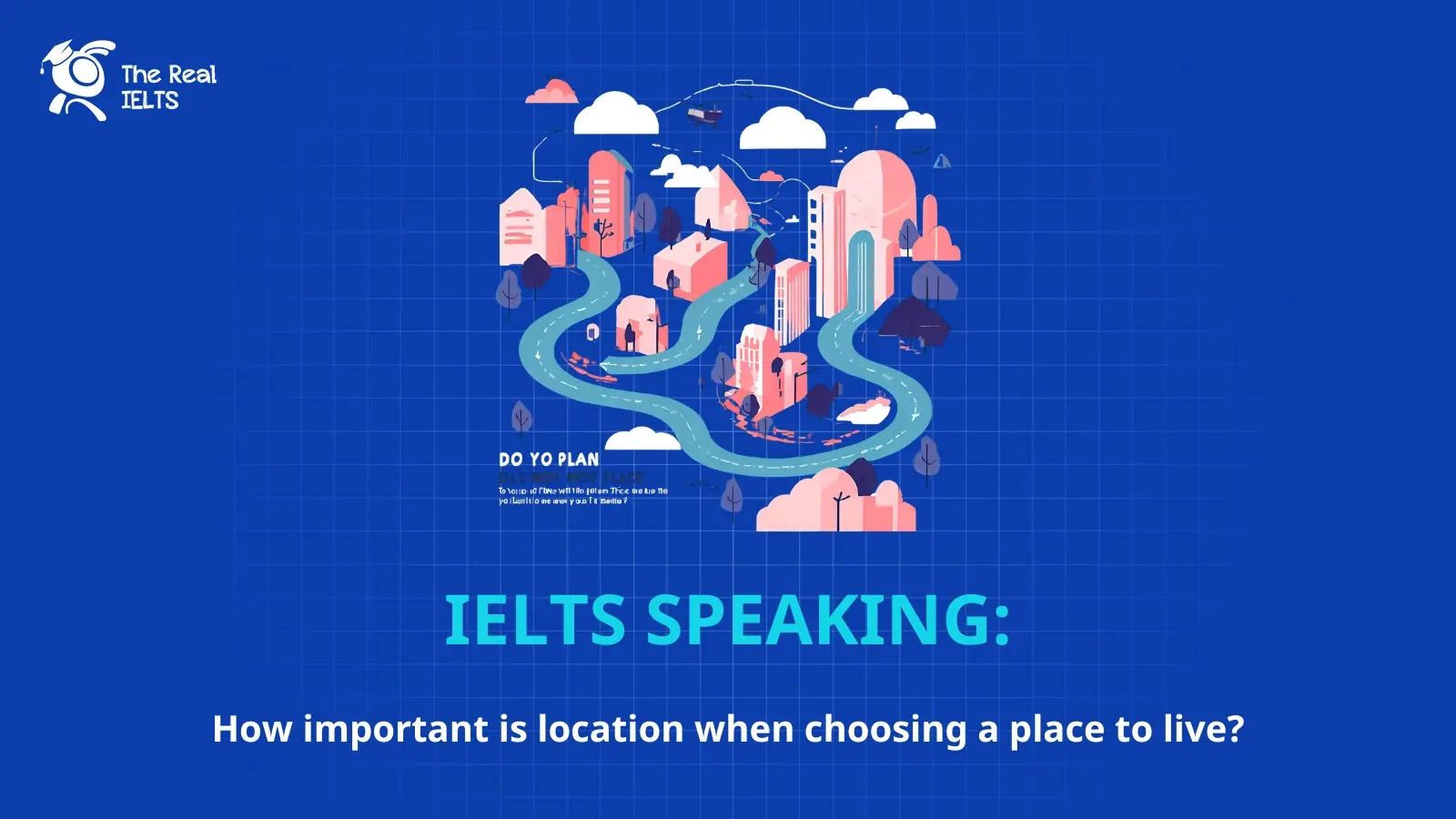Đề thi IELTS Reading có tiêu đề “The Role of Artificial Intelligence in Healthcare”
Nhớ đọc thêm các bài luyện thi IELTS nhé.
IELTS Reading: “The Role of Artificial Intelligence in Healthcare”
The integration of Artificial Intelligence (AI) in healthcare is revolutionizing the medical field, transforming how care is delivered, and improving patient outcomes. AI’s role in healthcare can be seen in various applications, from diagnostics and treatment planning to patient care and administration.
One of the most significant contributions of AI in healthcare is in the realm of diagnostics. AI algorithms can process vast amounts of data at speeds far beyond human capability, enabling the rapid analysis of medical images, genetic information, and clinical data. For instance, AI-powered imaging tools have been shown to detect diseases such as cancer, heart disease, and neurological disorders with a level of accuracy that rivals, and in some cases surpasses, that of experienced radiologists. These systems are trained on millions of data points, learning to identify patterns and anomalies that might be missed by human eyes. The result is earlier detection of diseases, which can lead to more effective treatments and better patient prognoses.
In addition to diagnostics, AI plays a critical role in treatment planning and personalized medicine. By analyzing patient data, including medical history, genetic information, and lifestyle factors, AI can assist healthcare providers in creating customized treatment plans tailored to the individual needs of patients. This personalized approach ensures that patients receive the most appropriate care, reducing the risk of adverse reactions to treatments and improving the likelihood of successful outcomes. Furthermore, AI-driven predictive analytics can help identify patients at risk of developing certain conditions, allowing for preventative measures to be implemented before the onset of disease.
AI is also making strides in the management of chronic diseases. For patients with conditions such as diabetes, heart disease, and chronic respiratory illnesses, continuous monitoring and timely interventions are crucial. AI-powered wearable devices can track vital signs and other health metrics in real-time, alerting healthcare providers to any concerning changes. These devices can also provide patients with personalized feedback and recommendations, empowering them to take a more active role in managing their health. This continuous monitoring not only improves patient outcomes but also reduces the burden on healthcare systems by preventing complications that would otherwise require more intensive care.
The role of AI extends beyond direct patient care to administrative tasks within healthcare organizations. AI can streamline operations by automating routine tasks such as appointment scheduling, billing, and data entry. This automation reduces the workload on healthcare staff, allowing them to focus more on patient care. Additionally, AI can optimize resource allocation, ensuring that healthcare facilities are staffed and equipped appropriately based on patient demand. This efficiency is particularly valuable in large healthcare systems, where managing resources effectively can significantly impact the quality of care provided.
Moreover, AI is playing a crucial role in medical research and drug development. The process of developing new drugs is traditionally time-consuming and costly, often taking years and billions of dollars. AI has the potential to accelerate this process by identifying promising drug candidates more quickly and accurately than traditional methods. By analyzing vast datasets of chemical compounds, genetic information, and patient outcomes, AI can predict which compounds are most likely to be effective in treating specific diseases. This capability not only speeds up the development of new therapies but also reduces the likelihood of failure in later stages of clinical trials, saving both time and resources.
Despite the numerous benefits of AI in healthcare, there are also challenges and concerns that need to be addressed. One of the primary concerns is the issue of data privacy and security. AI systems rely on large datasets to function effectively, and much of this data is sensitive medical information.
Ensuring that this data is protected from breaches and misuse is critical to maintaining patient trust and complying with regulations such as the Health Insurance Portability and Accountability Act (HIPAA). Additionally, there is the risk of bias in AI algorithms, which can occur if the data used to train these systems is not representative of the diverse patient populations they serve. This bias could lead to disparities in care, particularly for marginalized groups who are already at a disadvantage within the healthcare system.
Another challenge is the integration of AI into existing healthcare workflows. While AI has the potential to enhance the capabilities of healthcare providers, it is essential that these tools are user-friendly and seamlessly integrated into daily practices. Healthcare professionals need to be adequately trained to use AI tools effectively and to interpret the insights provided by these systems. Moreover, there is a need for clear guidelines and standards to ensure that AI is used ethically and responsibly in healthcare settings.
In conclusion, the role of AI in healthcare is rapidly expanding, offering numerous benefits in diagnostics, treatment planning, chronic disease management, administration, and medical research. As AI continues to evolve, it has the potential to significantly improve patient outcomes, enhance the efficiency of healthcare systems, and drive innovation in medical research. However, addressing the challenges related to data privacy, algorithmic bias, and integration into healthcare workflows is crucial to realizing the full potential of AI in healthcare. As the healthcare industry continues to embrace AI, it is essential to strike a balance between leveraging technology to improve care and ensuring that ethical considerations and patient well-being remain at the forefront of these advancements.
Đề bài thi IELTS Reading
Multiple Choice Questions (10 questions)
- What is one of the main advantages of AI in healthcare?
A. It can replace doctors entirely.
B. It processes large amounts of data quickly.
C. It eliminates the need for medical imaging.
D. It increases the cost of healthcare. - Which area of healthcare has AI significantly impacted according to the passage?
A. Medical imaging
B. Surgery
C. Nutrition counseling
D. Physical therapy - How does AI assist in personalized medicine?
A. By providing generic treatment plans
B. By analyzing patient data to tailor treatments
C. By recommending traditional methods only
D. By limiting patient choices - AI-driven wearable devices are particularly useful for patients with which condition?
A. Infectious diseases
B. Chronic diseases
C. Acute injuries
D. Mental health disorders - What is a key benefit of AI in medical research?
A. Slowing down the drug development process
B. Reducing the need for clinical trials
C. Identifying drug candidates faster
D. Making all diseases curable - What is a significant concern regarding AI in healthcare?
A. Lack of data
B. High cost of implementation
C. Data privacy and security
D. Decreased patient satisfaction - How can AI impact healthcare administration?
A. By eliminating administrative jobs
B. By automating routine tasks
C. By increasing paperwork
D. By reducing patient care time - What challenge is mentioned about the integration of AI into healthcare?
A. Lack of interest from healthcare professionals
B. Difficulty in making AI tools user-friendly
C. Limited AI capabilities
D. Insufficient patient data - In what way can AI reduce the burden on healthcare systems?
A. By providing all treatments online
B. By preventing complications through early intervention
C. By decreasing the need for doctors
D. By reducing healthcare costs significantly - What is necessary to ensure AI is used ethically in healthcare?
A. Rapid adoption of AI technology
B. Clear guidelines and standards
C. Limiting AI use to administrative tasks
D. Excluding AI from medical research
True/False/Not Given Questions (8 questions)
- AI has already surpassed human doctors in all aspects of healthcare.
True / False / Not Given - AI algorithms can detect diseases with more accuracy than human radiologists in some cases.
True / False / Not Given - AI is currently unable to assist in the management of chronic diseases.
True / False / Not Given - AI tools in healthcare are only useful for diagnostics and not for treatment planning.
True / False / Not Given - The passage mentions that AI can help in optimizing resource allocation in healthcare facilities.
True / False / Not Given - AI has eliminated the need for clinical trials in drug development.
True / False / Not Given - Concerns about AI in healthcare include the risk of algorithmic bias.
True / False / Not Given - The passage suggests that AI might replace all healthcare professionals in the future.
True / False / Not Given
Yes/No/Not Given Questions (6 questions)
- The author believes that AI has the potential to revolutionize healthcare.
Yes / No / Not Given - The author suggests that AI is more effective than human doctors in every aspect of patient care.
Yes / No / Not Given - The passage implies that AI can be a valuable tool in preventative healthcare.
Yes / No / Not Given - The author agrees that data privacy concerns are a major hurdle for AI in healthcare.
Yes / No / Not Given - The passage supports the idea that AI will make traditional medicine obsolete.
Yes / No / Not Given - The author expresses concern over the ethical implications of AI in healthcare.
Yes / No / Not Given
Matching Information Questions (4 questions)
25-28. Match the following information with the correct paragraphs in the passage:
A. The role of AI in chronic disease management
B. Challenges of integrating AI into healthcare
C. AI’s contribution to personalized medicine
D. AI’s impact on healthcare administration
- Paragraph 2
- Paragraph 4
- Paragraph 6
- Paragraph 8
Matching Headings Questions (4 questions)
29-32. Match the following headings with the correct paragraphs in the passage:
A. AI in Diagnostics
B. AI in Medical Research
C. Benefits of AI in Healthcare Administration
D. Ethical Concerns and Challenges
- Paragraph 1
- Paragraph 5
- Paragraph 7
- Paragraph 9
Sentence Completion Questions (4 questions)
- AI-powered imaging tools have been shown to detect diseases such as ____________ with a high level of accuracy.
- AI can help in creating ____________ that are tailored to individual patient needs.
- AI-driven devices can track vital signs in real-time, which is particularly useful for managing ____________.
- Concerns about AI in healthcare include ____________ and the risk of algorithmic bias.
Summary Completion Questions (4 questions)
37-40. Complete the summary below using words from the passage:
AI is transforming healthcare by improving ____________ through rapid data processing and analysis. It plays a crucial role in ____________ medicine by creating customized treatment plans. AI also aids in ____________ disease management by providing real-time monitoring and feedback. However, challenges such as data ____________ and algorithmic bias must be addressed to fully realize its potential.
Đáp án bài thi IELTS Reading
Multiple Choice Questions (10 questions)
- B – It processes large amounts of data quickly.
- A – Medical imaging
- B – By analyzing patient data to tailor treatments
- B – Chronic diseases
- C – Identifying drug candidates faster
- C – Data privacy and security
- B – By automating routine tasks
- B – Difficulty in making AI tools user-friendly
- B – By preventing complications through early intervention
- B – Clear guidelines and standards
True/False/Not Given Questions (8 questions)
- False – The passage does not state that AI has surpassed human doctors in all aspects of healthcare.
- True – The passage mentions that AI algorithms can detect diseases with accuracy that rivals or surpasses that of experienced radiologists.
- False – The passage clearly states that AI is making strides in the management of chronic diseases.
- False – The passage mentions AI’s role in both diagnostics and treatment planning.
- True – The passage mentions that AI can optimize resource allocation in healthcare facilities.
- False – The passage states that AI accelerates drug development, but does not eliminate the need for clinical trials.
- True – The passage mentions the risk of algorithmic bias as a concern.
- Not Given – The passage does not suggest that AI will replace all healthcare professionals.
Yes/No/Not Given Questions (6 questions)
- Yes – The author discusses AI’s potential to revolutionize healthcare in a positive light.
- No – The author does not suggest that AI is more effective than human doctors in every aspect.
- Yes – The passage implies AI can be valuable in preventative healthcare through predictive analytics.
- Yes – The author mentions data privacy as a major concern.
- No – The passage does not suggest AI will make traditional medicine obsolete.
- Yes – The author expresses concerns over ethical implications, including data privacy and algorithmic bias.
Matching Information Questions (4 questions)
- C – Paragraph 2: AI’s contribution to personalized medicine
- A – Paragraph 4: The role of AI in chronic disease management
- D – Paragraph 6: Challenges of integrating AI into healthcare
- B – Paragraph 8: AI’s impact on healthcare administration
Matching Headings Questions (4 questions)
- A – Paragraph 1: AI in Diagnostics
- B – Paragraph 5: AI in Medical Research
- C – Paragraph 7: Benefits of AI in Healthcare Administration
- D – Paragraph 9: Ethical Concerns and Challenges
Sentence Completion Questions (4 questions)
- cancer, heart disease, and neurological disorders
- customized treatment plans
- chronic diseases
- data privacy and security
Summary Completion Questions (4 questions)
- patient outcomes
- personalized
- chronic
- privacy
Luyện tập bài khác ở bài viết:”100 bài luyện IELTS Reading 2024 – 2025“


